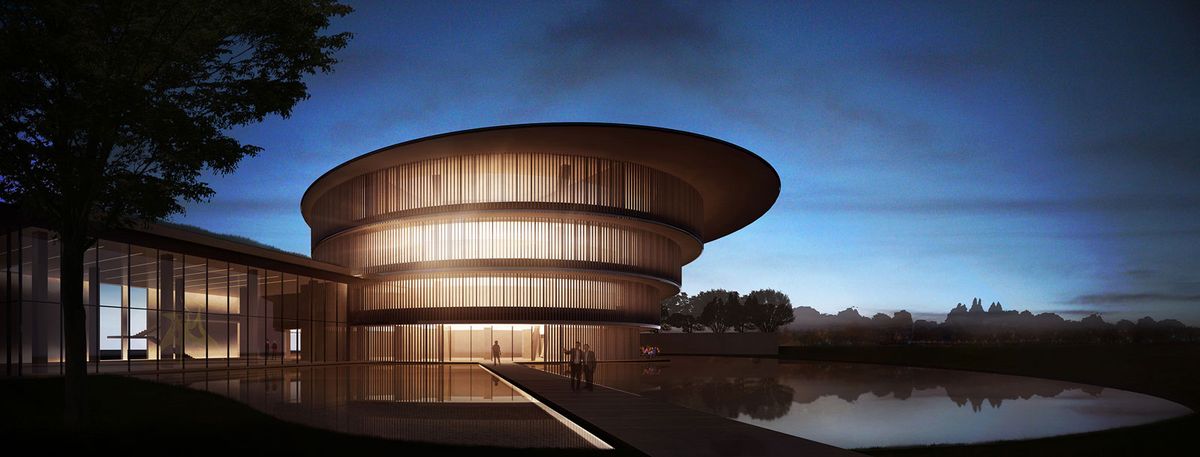The He Art Museum (HEM) announced today that it will postpone its launch originally scheduled for 21 March due to uncertainties stemming from redoubled efforts to contain the 2019 novel coronavirus, or 2019-nCoV. The new private project in Shunde district of the city of Foshan in Guangdong Province is backed by Midea electronics founder He Jianfeng with a 16,000 sq m double helix structured building designed by Tadao Ando.
“The health and safety of HEM’s staff, construction workers, artists, future visitors, and international collaborators are of top priority. HEM is closely following the measures from the Chinese government and World Health Organisation,” reads the statement. “HEM understands that China is doing all it can with a nationwide mobilisation effort to contain the spread of the virus. As a museum opening event is a major gathering, HEM decided to postpone the ceremony to minimise the risks of transmission. HEM is looking forward to finding a suitable date for its opening which will be announced in due course.” The museum is also postponing a press event in London planned for this week as well as architectural tours of the facility in late February.
Another much-awaited March debut, the X Museum in Beijing, announced last week that it would postpone its opening show, the X Museum Triennale, featuring 33 artists including Cui Jie, Cheng Ran and Xiaoshi Vivian Vivian Qin. “I decided to postpone because right now when coronavirus is going to be contained is up in the air. I don’t want to risk the health of our guests, our staff and also our construction team,” Michael Xufu Huang, who is cofounding the project with fellow collector Theresa Tse, tells The Art Newspaper. “I want to do it well so I don’t need to force opening X Museum in March with so many uncertainties.” Huang adds that they are currently eyeing an April opening, around Easter, instead.
Other March events including Gallery Weekend Beijing and Hong Kong’s art fairs Art Basel in Hong Kong and Art Central are still considering whether to cancel or scale down their 2020 iterations as ever more countries and territories implement travel restrictions. The US, Singapore, Australia and Indonesia have banned all non-citizen travellers who have been in mainland China for the past two weeks. Hong Kong last week ceased issuing permits to individual mainlander travellers, and as of today closed all entry points except for the airport and the Shenzhen Bay and Hong Kong-Zhuhai-Macau Bridge. The Special Administrative Region’s mainland-controlled government has thus far resisted, though, public pressure for a complete closure of the border, with about 2,400 Hong Kong medical staff striking from today in support of the border closure.
The World Health Organisation, which last week declared 2019-nCoV a public health emergencies of international concern (PHEIC), has also advised against blanket travel bans. China’s Lunar New Year holiday, originally slated to end tomorrow, has been extended to 9 February to minimise travel. The country’s stock markets resumed trading today, and the Shanghai Composite Index fell 7.72% to 2,746.61 points and the Shenzhen Component Index declined 8.45% to 9,779.67 points.
As of 3 February, there are 17,387 confirmed cases of the pneumonia-like disease worldwide in 23 countries, of which 17,254 patients and all but one of the 362 deaths were within mainland China. Sunday saw the first international death, of a mainland China citizen from Wuhan in Manila, the Philippines. Epicenter Hebei contains 11,177 cases and 350. Thus far 475 patients have recovered and been discharged from hospitals.


